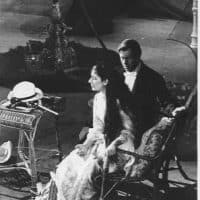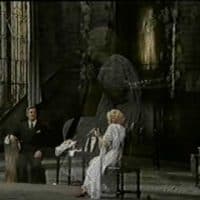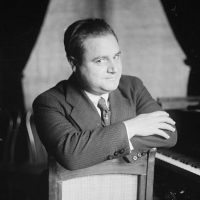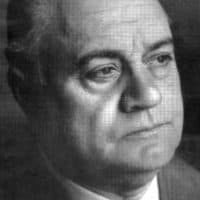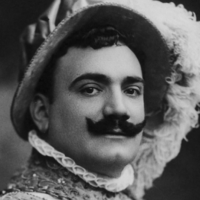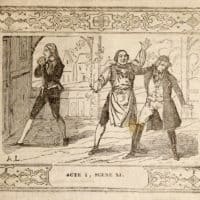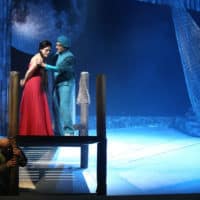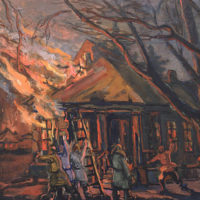It’s Monday, just three days before the Cambridge University Opera Society’s production of Jonathan Dove’s Tobias and the Angel. During down time in rehearsal, we get to chatting about all the ways we’re violating Dove’s intentions: we have no children’s chorus; we don’t split the men’s and women’s chorus parts as indicated in the score; and we’ve added a cheesy frame story to excuse our lack of sets, props, or costumes. ‘It’s a good thing Jonathan Dove will never hear about this,’ someone quips.

At Tuesday’s rehearsal, our conductor has news for us. ‘Apparently, someone on the society’s board has parents who know Jonathan Dove. They invited him to the show. So he’ll be at the matinee.’ None of us are quite sure how to react. Should we be nervous? Excited? Panicked? Indifferent? Of course, the show will be as good as we can make it—and it would have been even if the composer weren’t attending—but this adds a bit of extra pressure. And it’s not just the small changes we’ve made or our ultra-low-budget production that has me worried. It’s the music. The opera isn’t terribly well-known, so chances are no one else in the audience will recognize any mistakes or compare us to anyone else. But Jonathan Dove wrote this and helped guide early professional performances. He’s seen it done well, and he’ll notice anything we sing that’s not quite what’s on the page.
While the standard operatic canon is dominated by classics from 100+ years ago, new operas are produced frequently enough that most singers end up working on them at some point. In the premiere of a new commission or a revival of a successful opera written a decade or two ago, it’s not uncommon that the composer will get involved. Sometimes, as in my story, it’s simply a matter of attending the show, but professional productions at places like the Met often have composers involved much more heavily throughout the process. They might rewrite parts for the new singers, make changes based on how they think previous productions went, and offer interpretive suggestions.
In an interview with Jennifer Choi for Opera21, mezzo Alice Coote explained the benefits and anxieties of working with Nico Muhly on the Metropolitan Opera’s production of his opera Two Boys:
“He met to ask me what I thought about singing the role and if there is any way he could improve it for me. We’ve talked about that a lot, and he’s rewritten quite a lot of it for my voice and for what I thought perhaps would be more effective. So there’s been some tweaking going on, and he’s going to be around during rehearsal, so it’s incredible. It’s a very unusual situation. […] It’s actually scarier because he is going to be in the audience on opening night. Normally when you’re singing, whatever you’re singing, you’re thinking to yourself, ‘Am I getting this right?’ When I’m singing Mahler, I’m thinking, ‘Oh my god am I singing this right for Mahler? Am I doing what he would have wanted me to do?’ That’s always my intention, but I’m sort of free to make that choice in the moment and throw it out there. But this thing – Nico could be sitting there cringing and thinking, ‘What is she doing? She shouldn’t sing like that! I didn’t mean that. It should be nuanced differently. That note wasn’t slightly long enough.’ I’m afraid he’s going to stand up in the audience and shout ‘NOOOOOOO.’ I really hope he doesn’t leap up and yell, ‘Get this woman off the stage!!’”

I’m glad that even professionals find the composer’s presence a bit unnerving! From what I’ve heard, though, Alice Coote had nothing to worry about.
Neither did we, by the way. Jonathan Dove politely endured our production, and even offered us some genuine-sounding compliments. That’s another benefit of having the composer show up: his or her approval feels like the ultimate validation of your hard work as a singer.
